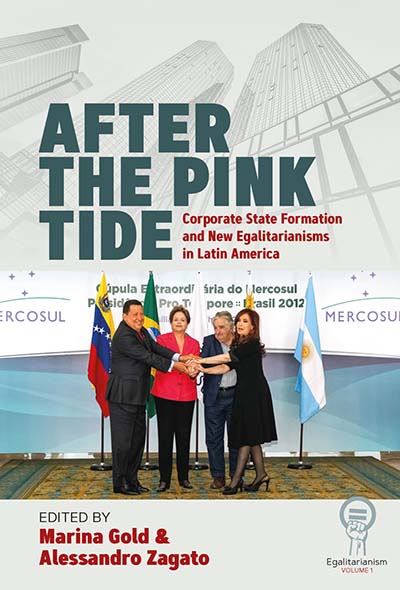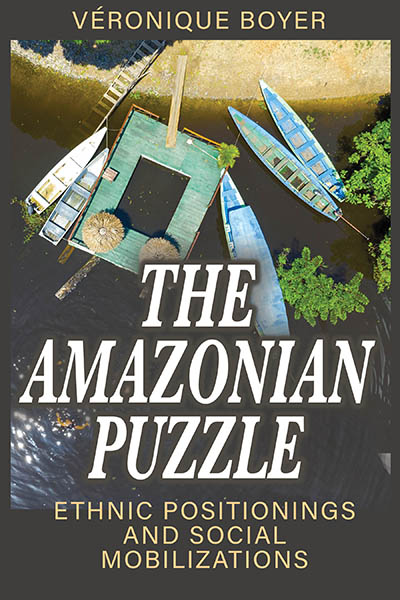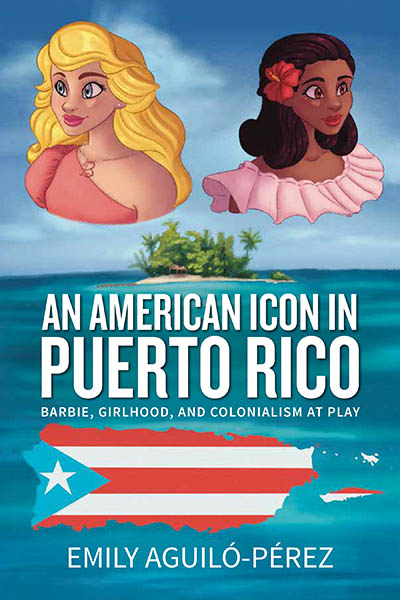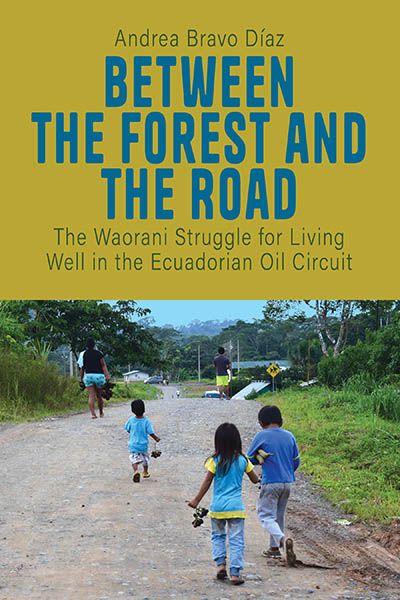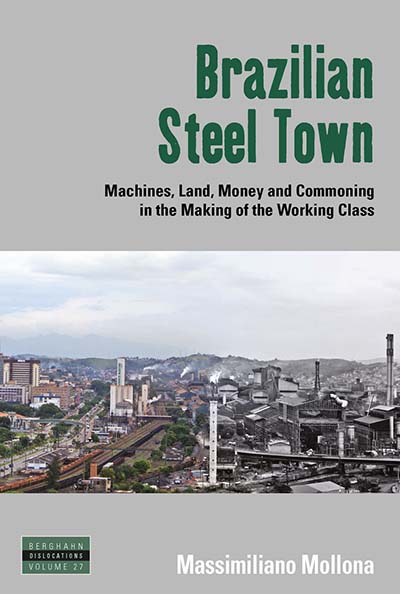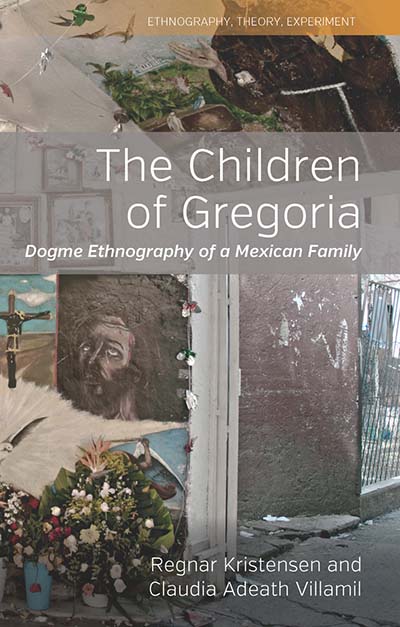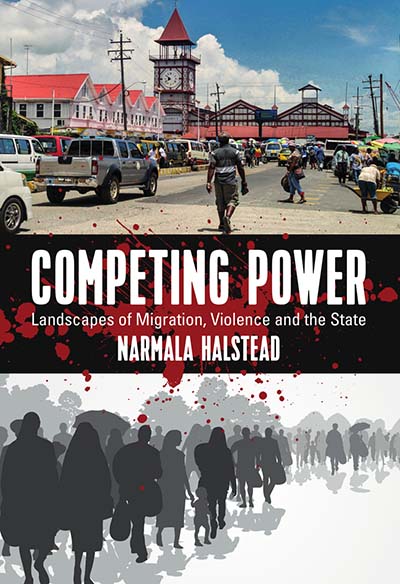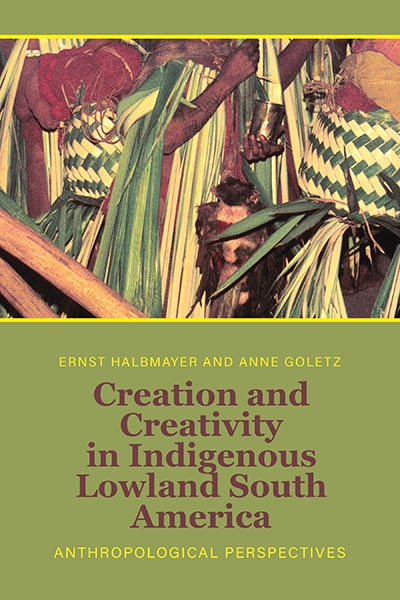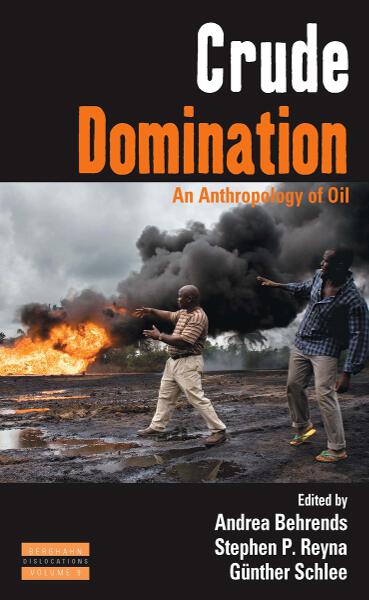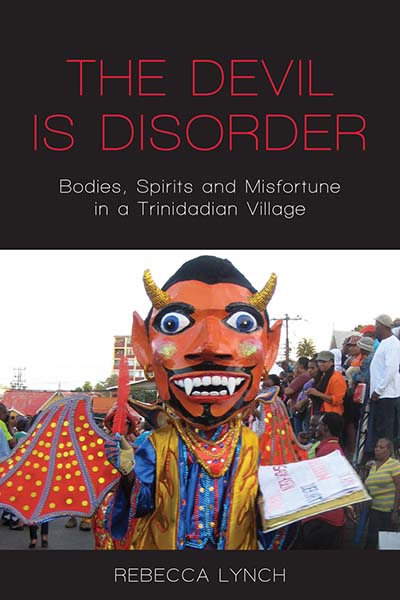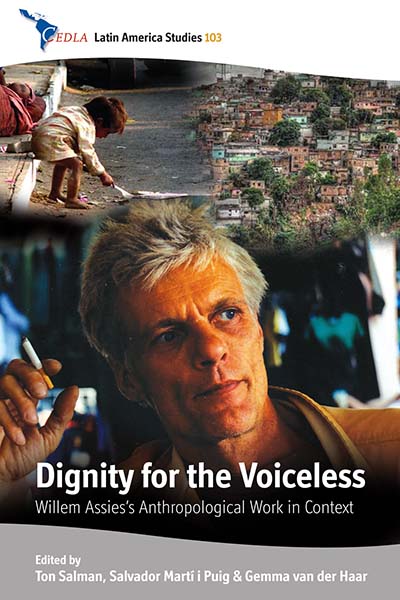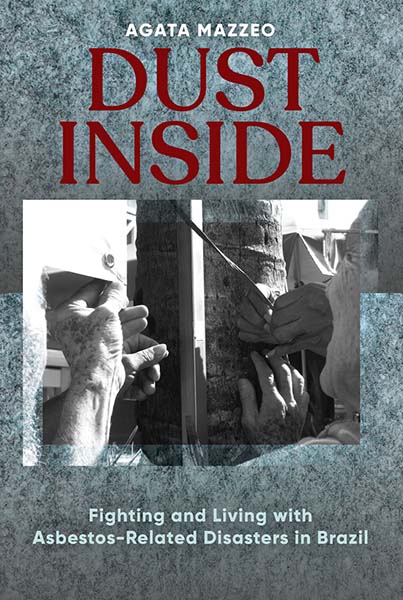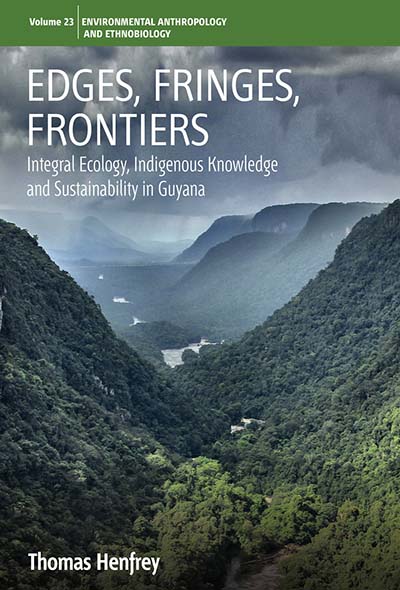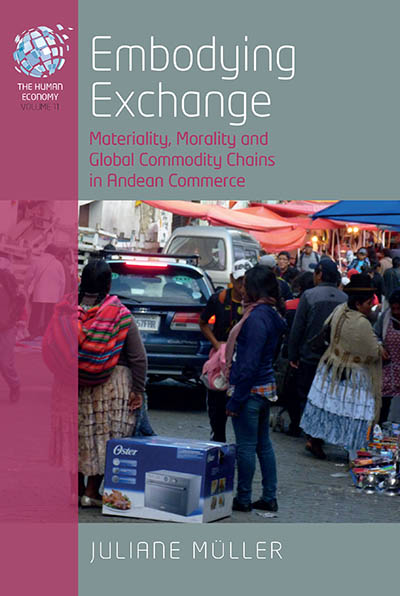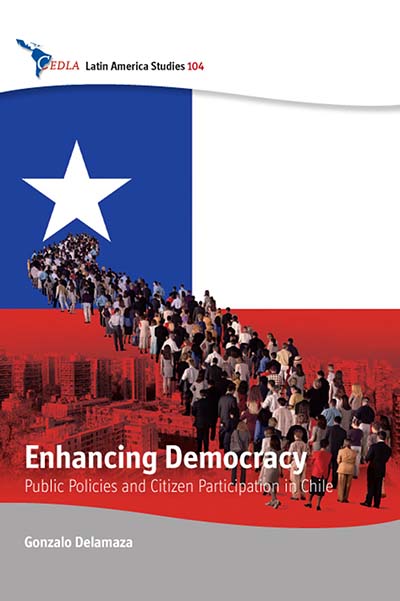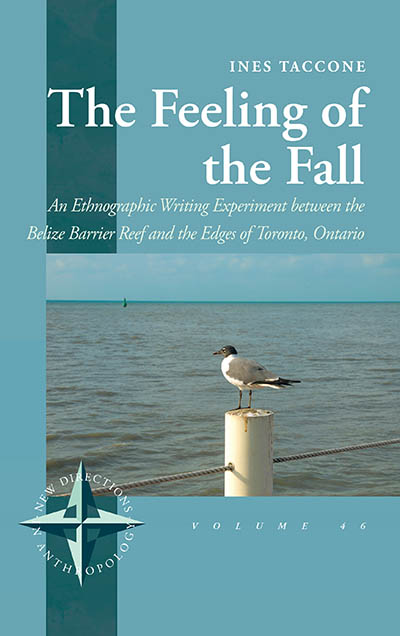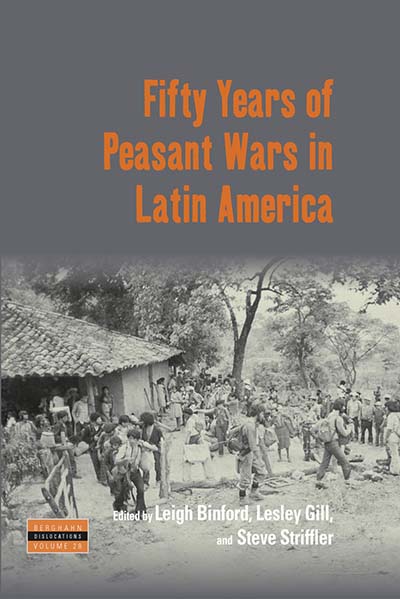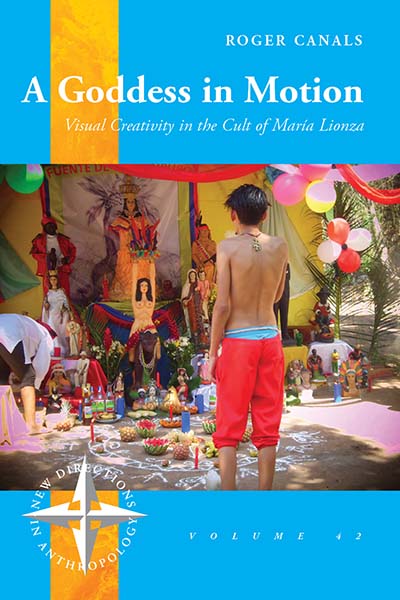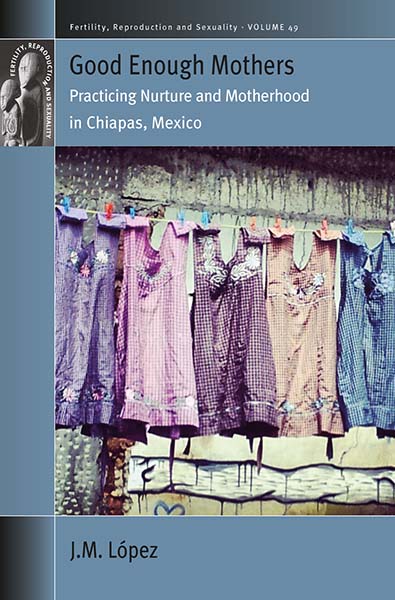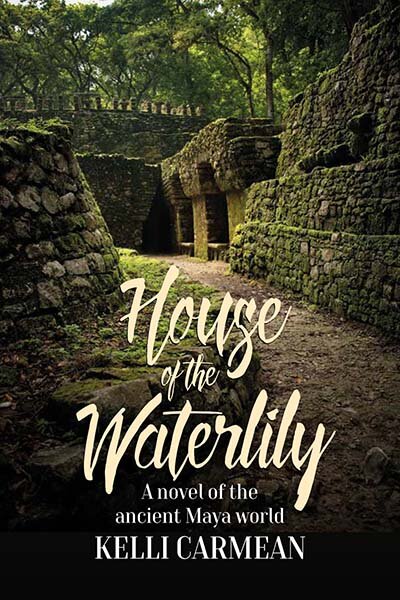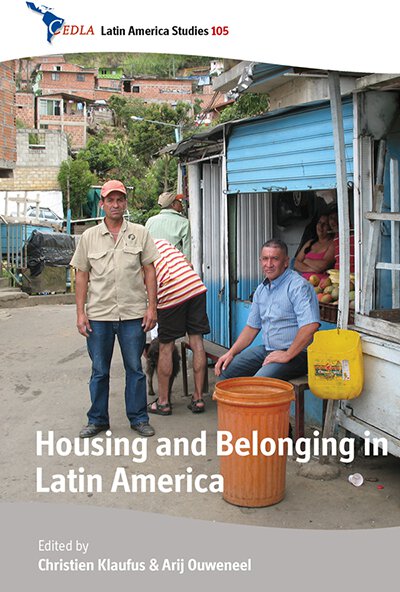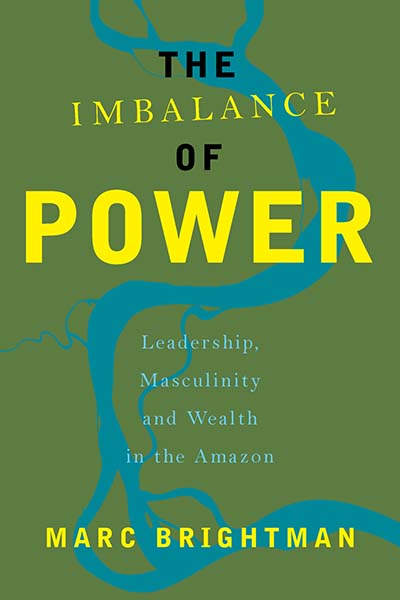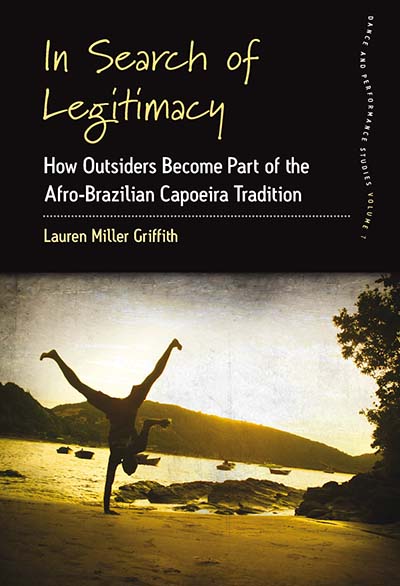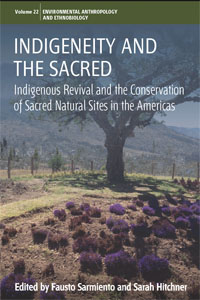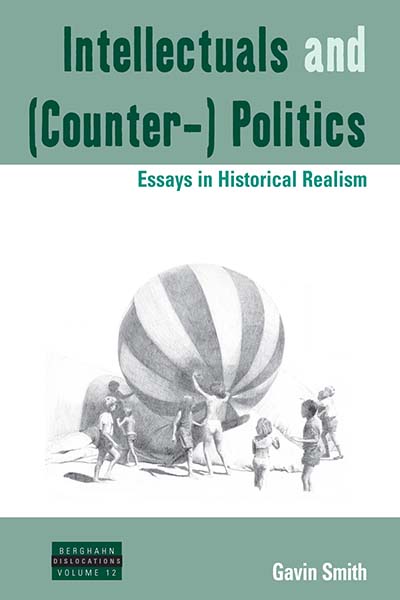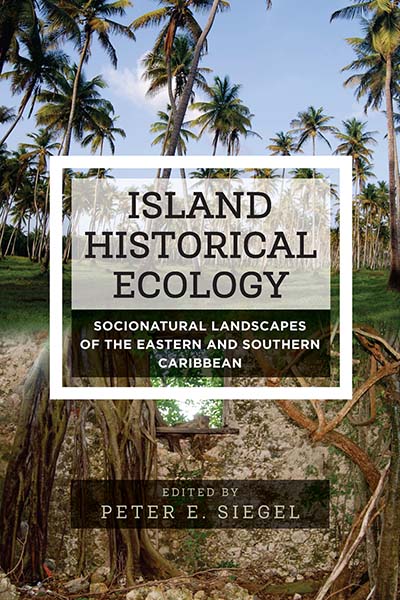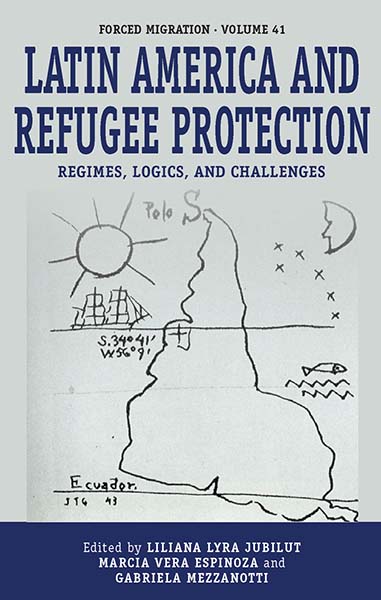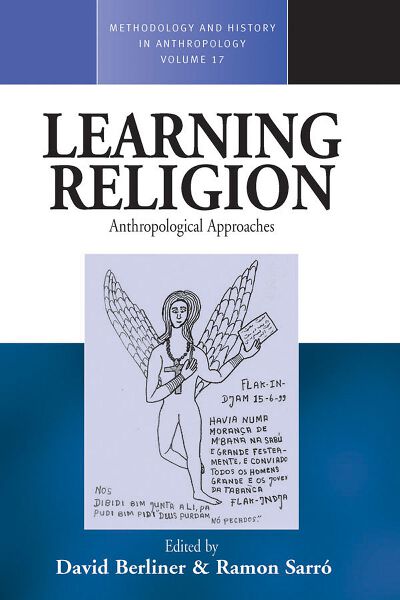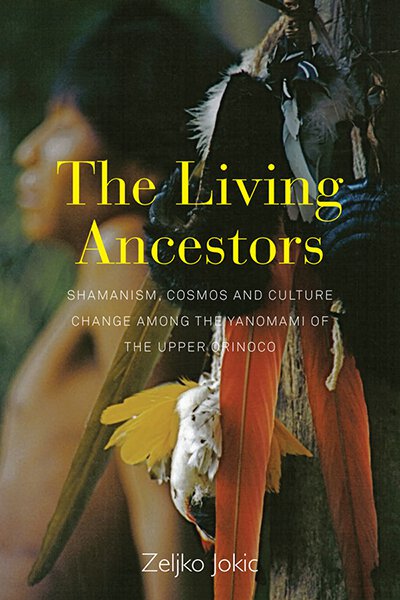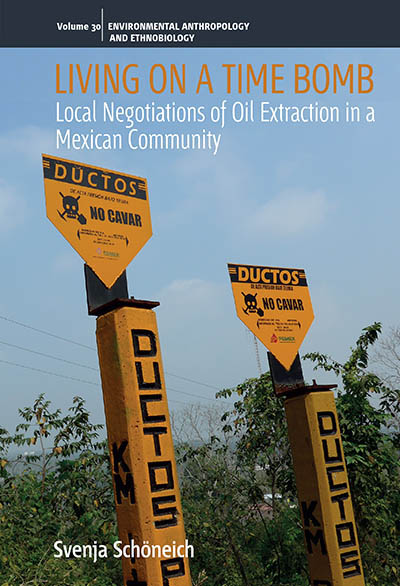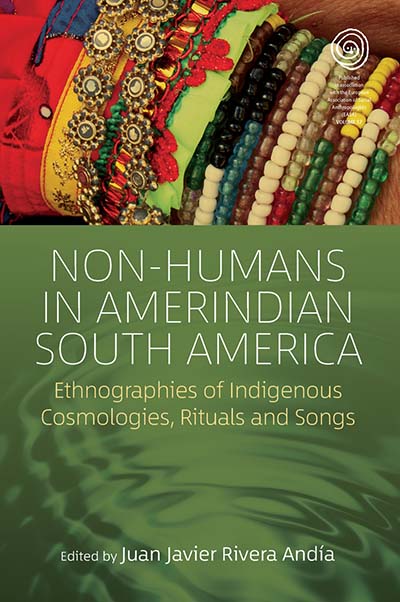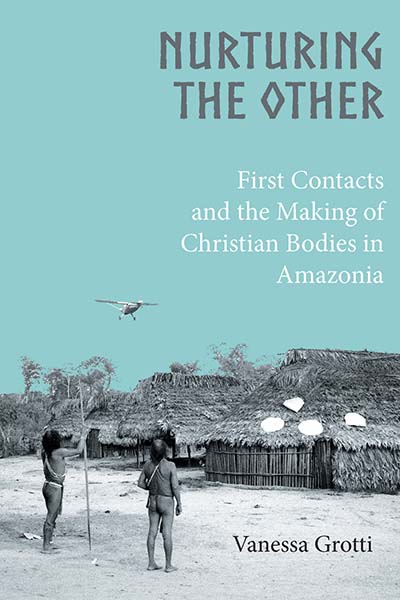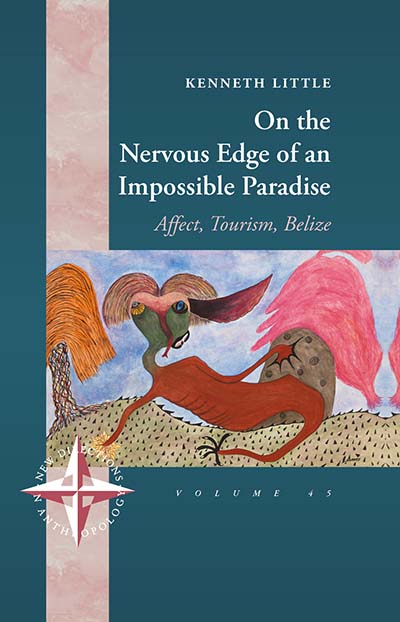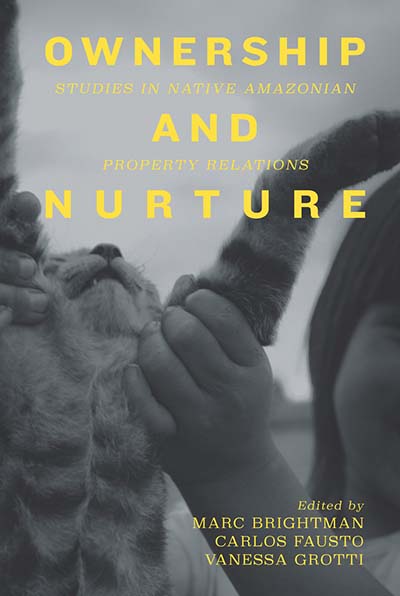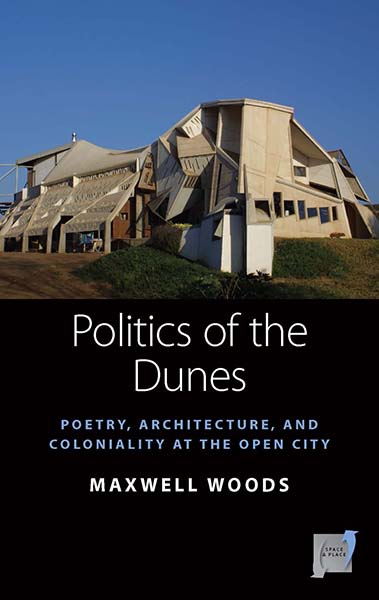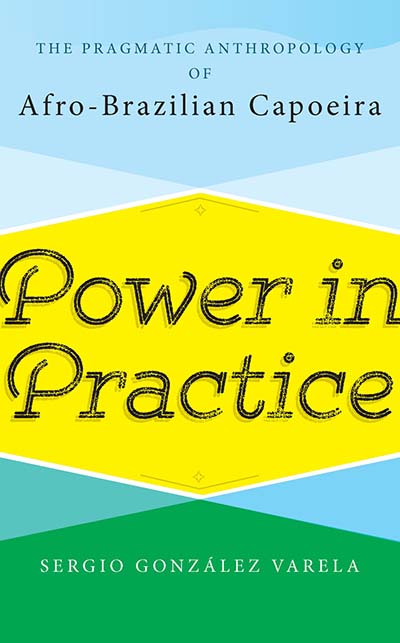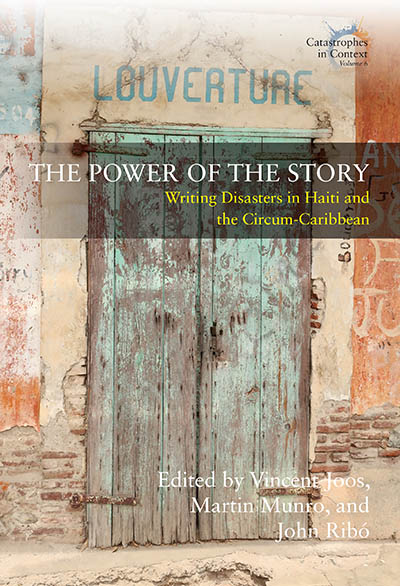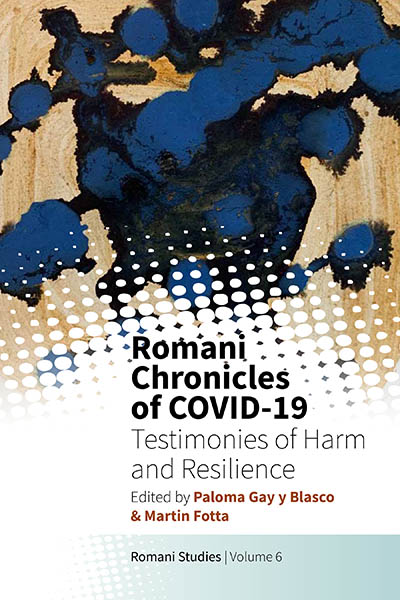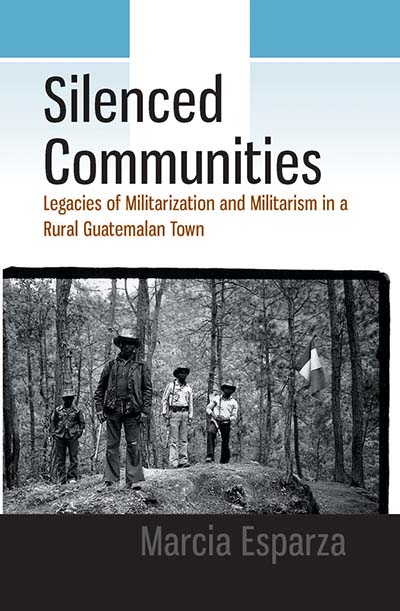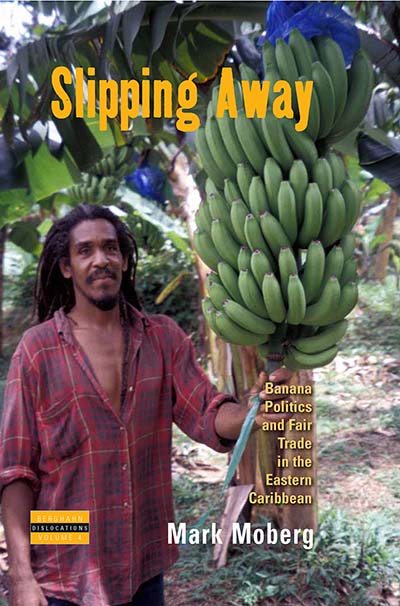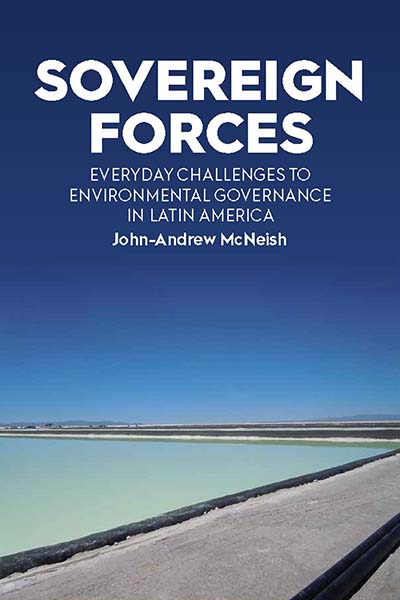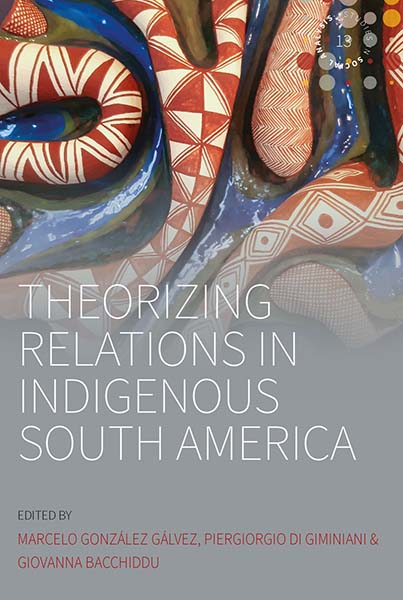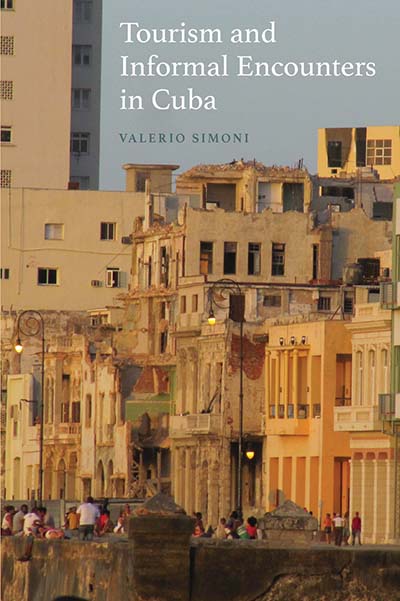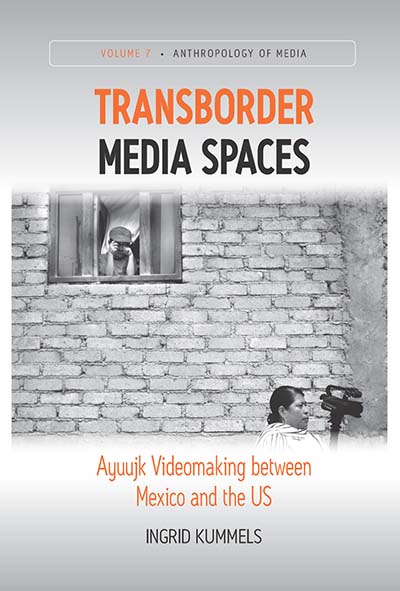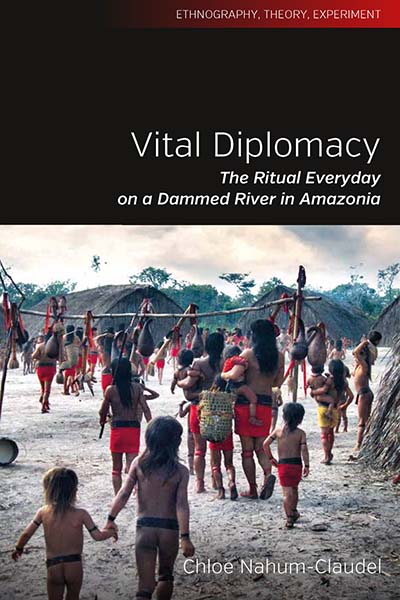Home -> Browse
-

After the Pink Tide
Corporate State Formation and New Egalitarianisms in Latin America
Gold, M. & Zagato, A. (eds)
The left-wing Pink Tide movement that swept across Latin America seems now to be overturned, as a new wave of free-market thinkers emerge across the continent. This book analyses the emergence of corporate power within Latin America and the response of egalitarian movements across the continent trying to break open the constraints of the state. Through an ethnographically grounded and localized anthropological perspective, this book argues that at a time when the regular structures of political participation have been ruptured, the Latin American context reveals multiple expressions of egalitarian movements that strive (and sometimes momentarily manage) to break through the state’s apparatus.
Subjects: Political and Economic Anthropology Anthropology (General)
Area: Latin America and the Caribbean
-

The Amazonian Puzzle
Ethnic Positionings and Social Mobilizations
Boyer, V.
In the Brazilian Amazon region, cultural “mixture” is expressed in the interaction of city and hinterland, of Indigenous and Black, of religiosity and politics. By examining the multiple cultural and ethnic threads that traverse this landscape, The Amazonian Puzzle sets out to show how the category of caboclo (a powerful spiritual entity to some, and to others a despised peasant of mixed ancestry) reveals deep currents of ethnic recompositions, religious interpenetration, and social hierarchy. These Amazonian dynamics are explored through the lens of ethnography, sociology, and history.
Subjects: Anthropology (General) Sociology
Area: Latin America and the Caribbean
-

An American Icon in Puerto Rico
Barbie, Girlhood, and Colonialism at Play
Aguiló-Pérez, E. R.
Focusing on multigenerational Puerto Rican women and girls, Emily R. Aguiló-Pérez masterfully illustrates how Barbie dolls impact femininity, body image, and cultural identity.
Since her debut in 1959, Barbie has transcended boundaries and transformed into a global symbol of femininity, capturing the imaginations of girls all around the world. An American Icon in Puerto Rico offers a captivating study of that iconic influence by focusing on a group of multigenerational Puerto Rican women and girls.
Through personal narratives and insights, author Emily R. Aguiló-Pérez unveils the emotional attachment that these women and girls have formed with the doll during their formative years. This connection serves as a powerful lens to explore the intricate relationships girls have with their Barbie dolls and the complex role Barbie plays in shaping their identities.
Aguiló-Pérez boldly confronts the challenges and contradictions that arise, offering a compelling analysis of how playing with Barbie dolls can impact a girl's perception of femininity, body image, race, and even national identity. Through these nuanced explorations, she unearths the potential pitfalls of these influences, encouraging readers to reflect on their own relationships with the iconic doll.
By weaving together personal anecdotes, historical context, and sociocultural analysis, Aguiló-Pérez masterfully illustrates how these women and girls navigate the diverse landscapes of femininity, body image, and cultural identity, with Barbie serving as both a facilitator and a reflection of their growth. In doing so, she redefines the significance of Barbie in the lives of Puerto Rican women and girls, prompting readers from all around the world to reevaluate their perceptions of femininity and embrace a more inclusive understanding of beauty, body image, and self-expression.
Subjects: Gender Studies and Sexuality Cultural Studies (General) Sociology
Area: Latin America and the Caribbean
-

Between the Forest and the Road
The Waorani Struggle for Living Well in the Ecuadorian Oil Circuit
Bravo Díaz, A.
During the past two decades Ecuadorians have engaged in a national debate around Buen Vivir (living well). This ethnography discusses one of the ways in which people experience well-being or aspire to live well in Ecuadorian Amazonia. Waponi Kewemonipa (living well) is a Waorani notion that embraces ideas of good conviviality, health and certain ecological relations. For the Waorani living along the oil roads, living well has taken many pathways. Notably, they have developed new spatial organizations as they move between several houses, and navigate between the economy of the market and the economy of the forest.
Subjects: Anthropology (General) Political and Economic Anthropology Environmental Studies (General) Sustainable Development Goals
Area: Latin America and the Caribbean
-

Brazilian Steel Town
Machines, Land, Money and Commoning in the Making of the Working Class
Mollona, M.
Volta Redonda is a Brazilian steel town founded in the 1940s by dictator Getúlio Vargas on an ex-coffee valley as a powerful symbol of Brazilian modernization. The city’s economy, and consequently its citizen’s lives, revolves around the Companha Siderurgica Nacional (CSN), the biggest industrial complex in Latin America. Although the glory days of the CSN have long passed, the company still controls life in Volta Redonda today, creating as much dispossession as wealth for the community. Brazilian Steel Town tells the story of the people tied to this ailing giant – of their fears, hopes, and everyday struggles.
Subjects: Political and Economic Anthropology Urban Studies Sociology
Area: Latin America and the Caribbean
-

The Children of Gregoria
Dogme Ethnography of a Mexican Family
Kristensen, R. & Adeath Villamil, C.
The Children of Gregoria portrays a struggling Mexico, told through the story of the Rosales family. The people entrenched in the violent communities that the Rosales belong to have been discussed, condemned, analyzed, joked about and cheered, but rarely have they been seriously listened to. This book highlights their voices and allows them to tell their own stories in an accessible, literary manner without prejudice, persecution or judgment.
Subjects: Anthropology (General) Theory and Methodology Media Studies
Area: Latin America and the Caribbean
-

Competing Power
Landscapes of Migration, Violence and the State
Halstead, N.
Drawing from ethnographic material based on long-term research, this volume considers competing forms of power at micro- and macro-levels in Guyana, where the local is marked by extensive migration, corruption, and differing levels of violence. It shows how the local is occupied and re-occupied by various powerful and powerless people and entities (“big ones” and “small ones”), and how it becomes the site of intense power negotiations in relation to external ideas of empowerment.
Subjects: Anthropology (General) Refugee and Migration Studies
Area: Latin America and the Caribbean
-

Creation and Creativity in Indigenous Lowland South America
Anthropological Perspectives
Halbmayer, E. & Goletz, A. (eds)
Investigating local Indigenous processes of creation and creativity, this book uses ethnographic and comparative anthropological perspectives to enquire about creative transformative practices in lowland South America. The volume shows how people create and reinforce their conditions of being by employing different genres of transgression and by creatively shifting contexts of significance. Local socio-cosmic orders, the interrelation of creative genres (myth, verbal art, song, ritual, and handicrafts), and their changing frames of reference (from communal celebrations to wider political and commercial realms) demonstrate the relational, generative, and processual quality of Amerindian creativity.
Subjects: Anthropology (General) Cultural Studies (General)
Area: Latin America and the Caribbean
-

Crude Domination
An Anthropology of Oil
Behrends, A., Reyna, S. P. & Schlee, G. (eds)
Crude Domination is an innovative and important book about a critical topic – oil. While there have been numerous works about petroleum from ‘experience-far’ perspectives, there have been relatively few that have turned the ‘experience-near’ ethnographic gaze of anthropology on the topic. Crude Domination does just this among more peoples and more places than any other volume. Its chapters investigate nuances of culture, politics and economics in Africa, Latin America, and Eurasia as they pertain to petroleum. They wrestle with the key questions vexing scholars and practitioners alike: problems of the economic blight of the resource curse, underdevelopment, democracy, violence and war. Additionally they address topics that may initially appear insignificant – such as child witches and lionmen, fighting for oil when there is no oil, reindeer nomadism, community TV – but which turn out on closer scrutiny to be vital for explaining conflict and transformation in petro-states. Based upon these rich, new worlds of information, the text formulates a novel, domination approach to the social analysis of oil.
Subjects: Peace and Conflict Studies Anthropology (General)
Areas: Africa Latin America and the Caribbean Central/Eastern Europe
-

The Devil is Disorder
Bodies, Spirits and Misfortune in a Trinidadian Village
Lynch, R.
What role might the Devil have in health and illness? The Devil is Disorder explores constructions of the body, health, illness and wider misfortune in a Trinidadian village where evangelical Christianity is growing in popularity. Based on long-term ethnography and locating the village in historical and global context, the book takes a nuanced cosmological approach to situate evangelical Christian understandings as shaping and being shaped by their context and, in the process, shaping individuals themselves. As people move from local to global subjects, health here stretches beyond being a matter of individual bodies and is connected to worldwide flows and networks, spirit entities, and expansive moral orders.
Subjects: Medical Anthropology Anthropology of Religion Sociology
Area: Latin America and the Caribbean
-

Dignity for the Voiceless
Willem Assies's Anthropological Work in Context
Salman, T., Marti i Puig, S., & Haar, G. van der (eds)
Willem Assies died in 2010 at the age of 55. The various stages of his career as a political anthropologist of Latin American illustrate how astute a researcher he was. He had a keen eye for the contradictions he observed during his fieldwork but also enjoyed theoretical debate. A distrust of power led him not only to attempt to understand “people without voice” but to work alongside them so they could discover and find their own voice. Willem Assies explored the messy, often untidy daily lives of people, with their inconsistencies, irrationalities, and passions, but also with their hopes, sense of beauty, solidarity, and quest for dignity. This collection brings together some of Willem Assies’s best, most fascinating, and still highly relevant writings.
Subjects: Anthropology (General) Development Studies
Area: Latin America and the Caribbean
-

Dust Inside
Fighting and Living with Asbestos-Related Disasters in Brazil
Mazzeo, A.
Toxic production, disrupted lives and contaminated bodies. Care for unacknowledged suffering, incurable cancers, and immeasurable losses. This book bears witness to the invisible disasters provoked by the asbestos market worldwide and gives a voice to the communities of survivors who struggle daily in the name of social and environmental justice. Grounded in a profound, touching ethnography, this book offers an original contribution to understanding global health disasters and grassroots health-based activism.
Subjects: Medical Anthropology Environmental Studies (General)
Area: Latin America and the Caribbean
-

Edges, Fringes, Frontiers
Integral Ecology, Indigenous Knowledge and Sustainability in Guyana
Henfrey, T. B.
Based on an ethnographic account of subsistence use of Amazonian forests by Wapishana people in Guyana, Edges, Frontiers, Fringes examines the social, cultural and behavioral bases for sustainability and resilience in indigenous resource use. Developing an original framework for holistic analysis, it demonstrates that flexible interplay among multiple modes of environmental understanding and decision-making allows the Wapishana to navigate socio-ecological complexity successfully in ways that reconcile short-term material needs with long-term maintenance and enhancement of the resource base.
Subjects: Anthropology (General) Environmental Studies (General)
Area: Latin America and the Caribbean
-

Embodying Exchange
Materiality, Morality and Global Commodity Chains in Andean Commerce
Müller, J.
Addressing the infrastructural, social and legal complexities of a global commodity chain, this book uses an ethnographic analysis of the encounter between multinational corporations and popular traders in the Bolivian Andes. It offers a situated account of the everyday work of chain (un)making, and practices of translation, accommodation and contention. It highlights traders’ collective action, understanding of economic concepts and regulatory principles, and traces the circulation of goods and money beyond market exchange. All in all, it aims to comprehend the reproduction of the native trading system amid global connections, and to humanize our understanding of the economy by grounding it in everyday life, bottom-up socio-material infrastructures and morality.
Subjects: Political and Economic Anthropology Development Studies
Area: Latin America and the Caribbean
-

Enhancing Democracy
Public Policies and Citizen Participation in Chile
Delamaza, G.
Since the end of the Pinochet regime, Chilean public policy has sought to rebuild democratic governance in the country. This book examines the links between the state and civil society in Chile and the ways social policies have sought to ensure the inclusion of the poor in society and democracy. Although Chile has gained political stability and grown economically, the ability of social policies to expand democratic governance and participation has proved limited, and in fact such policies have become subordinate to an elitist model of democracy and resulted in a restrictive form of citizen participation.
Subjects: Sociology Political and Economic Anthropology
Area: Latin America and the Caribbean
-

The Feeling of the Fall
An Ethnographic Writing Experiment between the Belize Barrier Reef and the Edges of Toronto, Ontario
Taccone, I.
As an inquiry into engagements with forces of loss and threat, this work explores experimental ways to write about climate crisis in anthropology. From Belize to Ontario and back, this ambitious piece of ethnographic writing set during a time “beyond ruin” in a fictional, ecotourist community in the year 2040. Here, loss is taken up through an inventive form of ethnographic storytelling that brings together people, animals, landscapes, and the weather in a world beyond the climate crisis right now where new entanglements with things which have fallen to ruin emerge in imagined milieus in which loss and life converge.
Subjects: Anthropology (General) Environmental Studies (General) Urban Studies
Areas: North America Latin America and the Caribbean
-

Fifty Years of Peasant Wars in Latin America
Binford, L., Gill, L., & Striffler, S. (eds)
Informed by Eric Wolf’s Peasant Wars of the Twentieth Century, published in 1969, this book examines selected peasant struggles in seven Latin American countries during the last fifty years and suggests the continuing relevance of Wolf’s approach. The seven case studies are preceded by an Introduction in which the editors assess the continuing relevance of Wolf’s political economy. The book concludes with Gavin Smith’s reflection on reading Eric Wolf as a public intellectual today.
Subjects: Political and Economic Anthropology Anthropology (General)
Area: Latin America and the Caribbean
-

A Goddess in Motion
Visual Creativity in the Cult of María Lionza
Canals, R.
The current practice of the cult of María Lionza is one of the most important and yet unexplored religious practices in Venezuela. Based on long-term fieldwork, this book explores the role of images and visual culture within the cult. By adopting a relational approach, A Goddess in Motion shows how the innumerable images of this goddess—represented as an Indian, white or mestizo woman—move constantly from objects to bodies, from bodies to dreams, and from the religion domain to the art world. In short, this book is a fascinating study that sheds light on the role of visual creativity in contemporary religious manifestations.
Subjects: Anthropology of Religion Anthropology (General) Cultural Studies (General)
Area: Latin America and the Caribbean
-

Good Enough Mothers
Practicing Nurture and Motherhood in Chiapas, Mexico
López, JM
Motherhood in Mexico is profoundly shaped by the legacy of colonialism. This ethnography situates motherhood in a critical global health analysis of maternal health inequalities and interventions in the southeast state of Chiapas. Using a transitional life course framework, it demonstrates how the transition to motherhood is never complete. Once a good mother is defined, she becomes undefined, the goal posts moved, and the rules confronted.
Subjects: Gender Studies and Sexuality Anthropology (General)
Area: Latin America and the Caribbean
-

Groundwater Politics
Advanced Extractivism and Slow Resistance
Babidge, S.
The mining industry is an expanding socio-ecological and political problem worldwide, not least in Atacameño-Likanantay (Indigenous) territories in the hyper-arid Salar de Atacama, Chile. Groundwater Politics addresses the social, technical and political conditions it calls ‘advanced extractivism’ to reveal how groundwater extraction sustains both ecological damage and mining economies. It richly describes the area's copper and lithium industries as historically linked with Indigenous communities and their ecological and economic futures. Based on over a decade of ethnographic research, the book casts community strategies to control water and territory as 'slow resistance’, the structural and multifaceted practices that generate a material future amid potential resource exhaustion.
Subjects: Environmental Studies (General) Political and Economic Anthropology Development Studies Sustainable Development Goals
Area: Latin America and the Caribbean
-

House of the Waterlily
A Novel of the Ancient Maya World
Carmean, K.
Set in the Maya civilization’s Late Classic Period House of the Waterlily is a historical novel centered on Lady Winik, a young Maya royal. Through tribulations that mirror the political calamities of the Late Classic world, Winik’s personal story immerses the reader not only in her daily life, but also in the difficult decisions Maya men and women must have faced as they tried to navigate a rapidly changing world. Kelli Carmean’s novel brings to life a people and an era remote from our own, yet recognizably human all the same.
Subjects: Archaeology Literary Studies Memory Studies Anthropology (General)
Area: Latin America and the Caribbean
-

Housing and Belonging in Latin America
Klaufus, C. & Ouweneel, A. (eds)
The intricacies of living in contemporary Latin American cities include cases of both empowerment and restriction. In Lima, residents built their own homes and formed community organizations, while in Rio de Janeiro inhabitants of the favelas needed to be “pacified” in anticipation of international sporting events. Aspirations to “get ahead in life” abound in the region, but so do multiple limitations to realizing the dream of upward mobility. This volume captures the paradoxical histories and experiences of urban life in Latin America, offering new empirical and theoretical insights to scholars.
Subjects: Urban Studies Sociology
Area: Latin America and the Caribbean
-

The Imbalance of Power
Leadership, Masculinity and Wealth in the Amazon
Brightman, M
Amerindian societies have an iconic status in classical political thought. For Montaigne, Hobbes, Locke, Hume and Rousseau, the native American ‘state of nature’ operates as a foil for the European polity. Challenging this tradition, The Imbalance of Power demonstrates ethnographically that the Carib speaking indigenous societies of the Guiana region of Amazonia do not fit conventional characterizations of ‘simple’ political units with ‘egalitarian’ political ideologies and ‘harmonious’ relationships with nature. Marc Brightman builds a persuasive and original theory of Amerindian politics: far from balanced and egalitarian, Carib societies are rife with tension and difference; but this imbalance conditions social dynamism and a distinctive mode of cohesion. The Imbalance of Power is based on the author’s fieldwork in partnership with Vanessa Grotti, who is working on a companion volume entitled Living with the Enemy: First Contacts and the Making of Christian Bodies in Amazonia.
Subject: Anthropology (General)
Area: Latin America and the Caribbean
-

In Search of Legitimacy
How Outsiders Become Part of the Afro-Brazilian Capoeira Tradition
Griffith, L. M.
Every year, countless young adults from affluent, Western nations travel to Brazil to train in capoeira, the dance/martial art form that is one of the most visible strands of the Afro-Brazilian cultural tradition. In Search of Legitimacy explores why “first world” men and women leave behind their jobs, families, and friends to pursue a strenuous training regimen in a historically disparaged and marginalized practice. Using the concept of apprenticeship pilgrimage—studying with a local master at a historical point of origin—the author examines how non-Brazilian capoeiristas learn their art and claim legitimacy while navigating the complexities of wealth disparity, racial discrimination, and cultural appropriation.
Subjects: Performance Studies Anthropology (General)
Area: Latin America and the Caribbean
-

Indigeneity and the Sacred
Indigenous Revival and the Conservation of Sacred Natural Sites in the Americas
Sarmiento, F. & Hitchner, S. (eds)
This book presents current research in the political ecology of indigenous revival and its role in nature conservation in critical areas in the Americas. An important contribution to evolving studies on conservation of sacred natural sites (SNS), the book elucidates the complexity of development scenarios within cultural landscapes related to the appropriation of religion, environmental change in indigenous territories, and new conservation management approaches. Indigeneity and the Sacred explores how these struggles for land, rights, and political power are embedded within physical landscapes, and how indigenous identity is reconstituted as globalizing forces simultaneously threaten and promote the notion of indigeneity.
Subjects: Environmental Studies (General) Development Studies Anthropology (General) Heritage Studies
Areas: North America Latin America and the Caribbean
-

Intellectuals and (Counter-) Politics
Essays in Historical Realism
Smith, G.
Contemporary forms of capitalism and the state require close analytic attention to reveal the conditions of possibility for effective counter-politics. On the other hand the practice of collective politics needs to be studied through historical ethnography if we are to understand what might make people’s actions effective. This book suggests a research agenda designed to maximize the political leverage of ordinary people faced with ever more remote states and technologies that make capitalism increasingly rapacious. Gavin Smith opens and closes this series of interlinked essays by proposing a concise framework for untangling what he calls “the society of capital” and subsequently a potentially controversial way of seeing its contemporary features. This book tackles the political conundrums of our times and asks what roles intellectuals might play therein.
Subjects: Anthropology (General) Political and Economic Anthropology
Areas: Latin America and the Caribbean Southern Europe
-

Island Historical Ecology
Socionatural Landscapes of the Eastern and Southern Caribbean
Siegel, P. (ed)
In the first book-length treatise on historical ecology of the West Indies, Island Historical Ecology addresses Caribbean island ecologies from the perspective of social and cultural interventions over approximately eight millennia of human occupations. Environmental coring carried out in carefully selected wetlands allowed for the reconstruction of pre-colonial and colonial landscapes on islands between Venezuela and Puerto Rico. Comparisons with well-documented patterns in the Mediterranean and Pacific islands place this case study into a larger context of island historical ecology.
Subjects: Archaeology Environmental Studies (General) Anthropology (General)
Area: Latin America and the Caribbean
-

Jaguars of the Dawn
Spirit Mediumship in the Brazilian Vale do Amanhecer
Pierini, E.
The Brazilian Spiritualist Christian Order Vale do Amanhecer (Valley of the Dawn) is the place where the worlds of the living and the spirits merge and the boundaries between lives are regularly crossed. Drawing upon over a decade of extensive fieldwork in temples of the Amanhecer in Brazil and Europe, the author explores how mediums understand their experiences and how they learn to establish relationships with their spirit guides. She sheds light on the ways in which mediumistic development in the Vale do Amanhecer is used for therapeutic purposes and informs notions of body and self, of illness and wellbeing.
Subjects: Anthropology of Religion Medical Anthropology Sociology
Area: Latin America and the Caribbean
-

Language and Political Subjectivity
Stancemaking, Power and Politics in Chile and Venezuela
Makihara, M. & Rodríguez, J. L.
Politics and power are understood as interconnected yet opposed forms of agency that do not exist without each other and depend on transgressions and the upholding of social boundaries. Language and Political Subjectivity is an ethnographic and historical piece of research that considers how Indigenous and diasporic communities, with their political subjectivities, expand over significant sociohistorical changes, debates, and struggles in the transformation of Chilean democracy and Venezuela’s Bolivarian Revolution. It offers an innovative approach to stancemaking as a rhetorical semiotic process that produces truth, beliefs, and certainties about social realities and relations.
Subject: Political and Economic Anthropology
Area: Latin America and the Caribbean
-

Latin America and Refugee Protection
Regimes, Logics, and Challenges
Jubilut, L. L., Vera Espinoza, M., & Mezzanotti, G. (eds)
Looking at refugee protection in Latin America, this landmark edited collection assesses what the region has achieved in recent years. It analyses Latin America’s main documents in refugee protection, evaluates the particular aspects of different regimes, and reviews their emergence, development and effect, to develop understanding of refugee protection in the region. Drawing from multidisciplinary texts from both leading academics and practitioners, this comprehensive, innovative and highly topical book adopts an analytical framework to understand and improve Latin America’s protection of refugees.
Subjects: Refugee and Migration Studies Political and Economic Anthropology Sustainable Development Goals
Area: Latin America and the Caribbean
-

Learning Religion
Anthropological Approaches
Berliner, D. & Sarró, R. (eds)
As we enter the 21st century, it becomes increasingly difficult to envisage a world detached from religion or an anthropology blind to its study. Yet, how people become religious is still poorly studied. This volume gathers some of the most distinguished scholars in the field to offer a new perspective for the study of religion, one that examines the works of transmission and innovation through the prism of learning. They argue that religious culture is socially and dynamically constructed by agents who are not mere passive recipients but engaged in active learning processes. Finding a middle way between the social and the cognitive, they see learning religions not as a mechanism of “downloading” but also as a social process with its relational dimension.
Subjects: Anthropology of Religion Theory and Methodology Sociology
Areas: Asia Latin America and the Caribbean Asia-Pacific
-

The Living Ancestors
Shamanism, Cosmos and Cultural Change among the Yanomami of the Upper Orinoco
Jokic, Z.
This phenomenologically oriented ethnography focuses on experiential aspects of Yanomami shamanism, including shamanistic activities in the context of cultural change. The author interweaves ethnographic material with theoretical components of a holographic principle, or the idea that the “part is equal to the whole,” which is embedded in the nature of the Yanomami macrocosm, human dwelling, multiple-soul components, and shamans’ relationships with embodied spirit-helpers. This book fills an important gap in the regional study of Yanomami people, and, on a broader scale, enriches understanding of this ancient phenomenon by focusing on the consciousness involved in shamanism through firsthand experiential involvement.
Subjects: Anthropology (General) Anthropology of Religion
Area: Latin America and the Caribbean
-

Living on a Time Bomb
Local Negotiations of Oil Extraction in a Mexican Community
Schöneich, S.
Providing a holistic understanding of extensive oil extraction in rural Mexico, this book focuses on a campesino community, where oil extraction is deeply inscribed into the daily lives of the community members. The book shows how oil shapes the space where it is extracted in every aspect and produces multiple uncertainties. The community members express these uncertainties using the metaphor of the time bomb. The book shows how they find ways to "live off the time bomb" by using mechanisms of short-term coping and long-term adaptation and thus, developing the capability to determine their lives despite the ever-changing challenges.
Subjects: Anthropology (General) Environmental Studies (General) Sustainable Development Goals
Area: Latin America and the Caribbean
-

A Long Journey Home
Losing and Remaking Home following Conflict and Displacement
Pérez Murcia, L. E.
Advancing contemporary scholarly debates on the role of home in understanding displacement and emplacement, A Long Journey Home explores powerful personal narratives from Colombia. The book examines the experiences of those whose sense of home has been disrupted by decades of conflict and violence. It highlights the profound feelings of loss and the enduring struggle of living without a home – an experience that can last for years or even decades. Through these stories, the book reveals how internally displaced people use creativity and imagination to remake their home while on the move.
Subjects: Refugee and Migration Studies Anthropology (General)
Area: Latin America and the Caribbean
-

Non-Humans in Amerindian South America
Ethnographies of Indigenous Cosmologies, Rituals and Songs
Rivera Andía, J. J. (ed)
Drawing on fieldwork from diverse Amerindian societies whose lives and worlds are undergoing processes of transformation, adaptation, and deterioration, this volume offers new insights into the indigenous constitutions of humanity, personhood, and environment characteristic of the South American highlands and lowlands. The resulting ethnographies – depicting non-human entities emerging in ritual, oral tradition, cosmology, shamanism and music – explore the conditions and effects of unequally ranked life forms, increased extraction of resources, continuous migration to urban centers, and the (usually) forced incorporation of current expressions of modernity into indigenous societies.
Subjects: Anthropology (General) Cultural Studies (General)
Area: Latin America and the Caribbean
-

Nurturing the Other
First Contacts and the Making of Christian Bodies in Amazonia
Grotti, V.
Combining archival research, oral history and long-term ethnography, this book studies relations between Amerindians and outsiders, such as American missionaries, through a series of contact expeditions that led to the 'pacification' of three native Amazonian groups in Suriname and French Guiana. The author examines and contrasts Amerindian and non-Amerindian views on this process of social transformation through the lens of the body, notions of peacefulness and kinship, as well as native warfare and shamanism. The book addresses questions of change and continuity, and the little explored links between first contacts, capture and native conversion to Christianity in contemporary indigenous Amazonia.
Subjects: Anthropology (General) Colonial History Anthropology of Religion
Area: Latin America and the Caribbean
-

On the Nervous Edge of an Impossible Paradise
Affect, Tourism, Belize
Little, K.
There are beastly forces in Belize. Forces that are actively involved in making paradise impossible. On the Nervous Edge of an Impossible Paradise is a collection of seven stories about local lives in the fictional village of Wallaceville. Lives turn rogue in the face of runaway forces that take the form and figure of a Belize beast-time, which can appear as a comic mishap, social ruin, tragic excess, or wild guesses. Inciting the affective politics of life in the region, this fable of emergence evokes the unnerving uncertainties of life in the tourist state of Belize.
Subjects: Anthropology (General) Literary Studies
Area: Latin America and the Caribbean
-

Ownership and Nurture
Studies in Native Amazonian Property Relations
Brightman, M., Fausto, C. & Grotti, V. (eds)
The first book to address the classic anthropological theme of property through the ethnography of Amazonia, Ownership and Nurture sets new and challenging terms for anthropological debates about the region and about property in general. Property and ownership have special significance and carry specific meanings in Amazonia, which has been portrayed as the antithesis of Western, property-based, civilization. Through carefully constructed studies of land ownership, slavery, shamanism, spirit mastery, aesthetics, and intellectual property, this volume demonstrates that property relations are of central importance in Amazonia, and that the ownership of persons plays an especially significant role in native cosmology.
Subject: Anthropology (General)
Area: Latin America and the Caribbean
-

Politics of the Dunes
Poetry, Architecture, and Coloniality at the Open City
Woods, M.
Founded in the late 1960s on Chile’s Pacific coast, the Open City (la Ciudad Abierta) has become an internationally recognized site of cutting-edge architectural experimentation. Yet with a global reputation as an apolitical collective, little has been discussed about the Open City’s relationship with Chilean history and politics. Politics of the Dunes explores the ways in which the Open City’s architectural and urban practice is devoted to keeping open the utopian possibility for multiplicity, pluralism, and democratization in the face of authoritarianism, a powerful mode of postcolonial environmental urbanism that can inform architectural practices today.
Subjects: Urban Studies Sociology History (General)
Area: Latin America and the Caribbean
-

Power in Practice
The Pragmatic Anthropology of Afro-Brazilian Capoeira
González Varela, S.
Considering the concept of power in capoeira, an Afro-Brazilian ritual art form, Varela describes ethnographically the importance that capoeira leaders (mestres) have in the social configuration of a style called Angola in Bahia, Brazil. He analyzes how individual power is essential for an understanding of the modern history of capoeira, and for the themes of embodiment, play, cosmology, and ritual action. The book also emphasizes the great significance that creativity and aesthetic expression have for capoeira’s practice and performance.
Subjects: Anthropology (General) Performance Studies
Area: Latin America and the Caribbean
-

The Power of the Story
Writing Disasters in Haiti and the Circum-Caribbean
Joos, V., Munro, M. & Ribó, J. (eds)
A cross-disciplinary volume that combines and puts into dialogue perspectives on disasters, this book includes contributions from anthropology, history, cultural studies, sociology, and literary studies. Offering a rich and diverse set of arguments and analyses on the ever-relevant theme of catastrophe in the circum-Caribbean, it will encourage debate and collaboration between scholars working on disasters from a range of disciplinary perspectives.
Subjects: Political and Economic Anthropology Cultural Studies (General) Sociology
Area: Latin America and the Caribbean
-

A Revelatory Pandemic
Crisis, Agency, and COVID in Latin America
Barrios, R. & García-Acosta, V. (eds)
Political leaders and the news media described the public-health catastrophe of COVID-19 as a crisis, while scholars and public intellectuals portrayed the pandemic as a debacle that would lay bare the inequities and contradictions of an increasingly neoliberal global political economy and usher in an era of progressive, transformative change. Bringing the anthropologies of disaster, epidemics, and crisis into conversation, A Revelatory Pandemic subjects these hopeful expectations of post-pandemic change to social-scientific scrutiny across Latin America and challenges popular and scholarly assumptions about the causes and outcomes of crisis.
Subjects: Medical Anthropology Political and Economic Anthropology Sociology
Area: Latin America and the Caribbean
-

Romani Chronicles of COVID-19
Testimonies of Harm and Resilience
Blasco, P. G. y & Fotta, M. (eds)
A ground-breaking volume that gathers the testimonies of NGO workers, street vendors, activists, scholars, health professionals, and creative writers to chronicle the devastating impact of COVID-19 on Romani communities globally.
The contributors reveal how the pandemic has exacerbated Romani disenfranchisement and document the resilience and creativity with which Romanies have responded to the crisis. Deploying innovative textual formats, and including poignant personal reflections, memoirs, scholarly analyses, and diary excerpts, the volume provides a roadmap for collaboration and dialogue at a time of global emergency.
This is the most significant chronicle of Romani stories about the COVID crisis ever assembled.
From the Introduction:
The contributions include memoirs, opinion essays, transcriptions of conversations or interviews, ethnographic analyses, and a compelling short story by Romani writer Iveta Kokyová, as well as pieces that stride the boundaries between one or more of these genres, or that fit into none.Subjects: Anthropology (General) Sociology Medical Anthropology
Areas: Europe Latin America and the Caribbean
-

Silenced Communities
Legacies of Militarization and Militarism in a Rural Guatemalan Town
Esparza, M.
Although the Guatemalan Civil War ended more than two decades ago, its bloody legacy continues to resonate even today. In Silenced Communities, author Marcia Esparza offers an ethnographic account of the failed demilitarization of the rural militia in the town of Santo Tomás Chichicastenango following the conflict. Combining insights from postcolonialism, subaltern studies, and theories of internal colonialism, Esparza explores the remarkable resilience of ideologies and practices engendered in the context of the Cold War, demonstrating how the lingering effects of grassroots militarization affect indigenous communities that continue to struggle with inequality and marginalization.
Subjects: Peace and Conflict Studies History: 20th Century to Present
Area: Latin America and the Caribbean
-

Slipping Away
Banana Politics and Fair Trade in the Eastern Caribbean
Moberg, M.
During the 1990s, the Eastern Caribbean was caught in a bitter trade dispute between the US and EU over the European banana market. When the World Trade Organization rejected preferential access for Caribbean growers in 1998 the effect on the region’s rural communities was devastating. This volume examines the “banana wars” from the vantage point of St. Lucia’s Mabouya Valley, whose recent, turbulent history reveals the impact of global forces. The author investigates how the contemporary structure of the island’s banana industry originated in colonial policies to create a politically “stable” peasantry, followed by politicians’ efforts to mobilize rural voters. These political strategies left farmers dependent on institutional and market protection, leaving them vulnerable to any alteration in trade policy. This history gave way to a new harsh reality, in which neoliberal policies privilege price and quantity over human rights and the environment. However, against these challenges, the author shows how the rural poor have responded in creative ways, including new social movements and Fair Trade farming, in order to negotiate a stronger position for themselves in the in a shifting global economy.
Subjects: Refugee and Migration Studies Development Studies
Area: Latin America and the Caribbean
-

Sovereign Forces
Everyday Challenges to Environmental Governance in Latin America
McNeish, J.-A.
Sovereignty is a significant force regarding the ownership, use, protection and management of natural resources. By placing an emphasis on the complex intertwined relationship between natural resources and diverse claims to resource sovereignty, this book reveals the backstory of contemporary resource contestations in Latin America and their positioning within a more extensive history of extraction in the region. Exploring cases of resource contestation in Bolivia, Colombia and Guatemala, Sovereign Forces highlights the value of these relationships to the practice of environmental governance and peacebuilding in the region.
Subjects: Environmental Studies (General) Political and Economic Anthropology Peace and Conflict Studies Sustainable Development Goals
Area: Latin America and the Caribbean
-

Subjectivity at Latin America's Urban Margins
Kopper, M. & Richmond, M. A. (eds)
Extreme inequalities, uneven planning, and unruly environments have long shaped individual and collective subjectivities at Latin America’s urban margins. Yet these same margins have frequently given rise to new forms of community organization, cultural practice, and social mobilization. This volumeframes the urban margins as complex and multi-layered sites where ongoing translocal histories of exploitation and marginalization meet distinctly local and interpersonal forms of sociability, subjective belonging, and political agency. Through nuanced ethnographic work and cross-disciplinary theoretical insights, Subjectivity at Latin America’s Urban Margins unpacks this complexity, investigating how margins are upheld, negotiated, and challenged.
Subjects: Urban Studies Anthropology (General) Cultural Studies (General)
Area: Latin America and the Caribbean
-

Theorizing Relations in Indigenous South America
González Gálvez, M., Di Giminiani, P., & Bacchiddu, G. (eds)
Whether invented, discovered, implicit, or directly addressed, relations remain the main focus of most anthropological inquiries. These relations, once conceptualized in ethnographic fieldwork as self-evident connections between discrete social units, have been increasingly explored through local ontological theories. This collected volume explores how ethnographies of indigenous South America have helped to inspire this analytic shift, demonstrating the continued importance of ethnographic diversity. Most importantly, this volume asserts that comparative ethnographic research can help illustrate complex questions surrounding relations vis-à-vis the homogenizing effects of modern coloniality.
Subjects: Theory and Methodology Cultural Studies (General)
Area: Latin America and the Caribbean
-

Tourism and Informal Encounters in Cuba
Simoni, V.
Based on a detailed ethnography, this book explores the promises and expectations of tourism in Cuba, drawing attention to the challenges that tourists and local people face in establishing meaningful connections with each other. Notions of informal encounter and relational idiom illuminate ambiguous experiences of tourism harassment, economic transactions, hospitality, friendship, and festive and sexual relationships. Comparing these various connections, the author shows the potential of touristic encounters to redefine their moral foundations, power dynamics, and implications, offering new insights into how contemporary relationships across difference and inequality are imagined and understood.
Subjects: Anthropology (General) Travel and Tourism
Area: Latin America and the Caribbean
-

Transborder Media Spaces
Ayuujk Videomaking between Mexico and the US
Kummels, I.
Transborder Media Spaces offers a new perspective on how media forms like photography, video, radio, television, and the Internet have been appropriated by Mexican indigenous people in the light of transnational migration and ethnopolitical movements. In producing and consuming self-determined media genres, actors in Tamazulapam Mixe and its diaspora community in Los Angeles open up media spaces and seek to forge more equal relations both within Mexico and beyond its borders. It is within these spaces that Ayuujk people carve out their own, at times conflicting, visions of development, modernity, gender, and what it means to be indigenous in the twenty-first century.
Subjects: Media Studies Anthropology (General)
Area: Latin America and the Caribbean
-

Unsafe Motherhood
Mayan Maternal Mortality and Subjectivity in Post-War Guatemala
Berry, N.
“[S]heds light not only on the obstacles to making motherhood safer, but to improving the health of poor populations in general.”—Social Anthropology
Since 1987, when the global community first recognized the high frequency of women in developing countries dying from pregnancy-related causes, little progress has been made to combat this problem. This study follows the global policies that have been implemented in Sololá, Guatemala in order to decrease high rates of maternal mortality among indigenous Mayan women.
The author examines the diverse meanings and understandings of motherhood, pregnancy, birth and birth-related death among the biomedical personnel, village women, their families, and midwives. These incongruous perspectives, in conjunction with the implementation of such policies, threaten to disenfranchise clients from their own cultural understandings of self. The author investigates how these policies need to meld with the everyday lives of these women, and how the failure to do so will lead to a failure to decrease maternal deaths globally.
From the Introduction:
An unspoken effect of reducing maternal mortality to a medical problem is that life and death become the only outcomes by which pregnancy and birth are understood. The specter of death looms large and limits our full exploration of either our attempts to curb maternal mortality, or the phenomenon itself. Certainly women’s survival during childbirth is the ultimate measure of success of our efforts. Yet using pregnancy outcomes and biomedical attendance at birth as the primary feedback on global efforts to make pregnancy safer is misguided.Subjects: Anthropology (General) Medical Anthropology
Area: Latin America and the Caribbean
-

Vital Diplomacy
The Ritual Everyday on a Dammed River in Amazonia
Nahum-Claudel. C.
In Brazil, where forest meets savanna, new towns, agribusiness and hydroelectric plants form a patchwork with the indigenous territories. Here, agricultural work, fishing, songs, feasts and exchanges occupy the Enawenê-nawê for eight months of each year during a season called Yankwa. Vital Diplomacy focuses on this major ceremonial cycle to shed new light on classic Amazonian themes such as kinship, gender, manioc cultivation and cuisine, relations with non-humans and foreigners, and the interplay of myth and practice, exploring how ritual contains and diverts the threat of violence by reconciling antagonistic spirits, coordinating social and gender divides, and channelling foreign relations and resources.
Subjects: Anthropology (General) Cultural Studies (General)
Area: Latin America and the Caribbean


